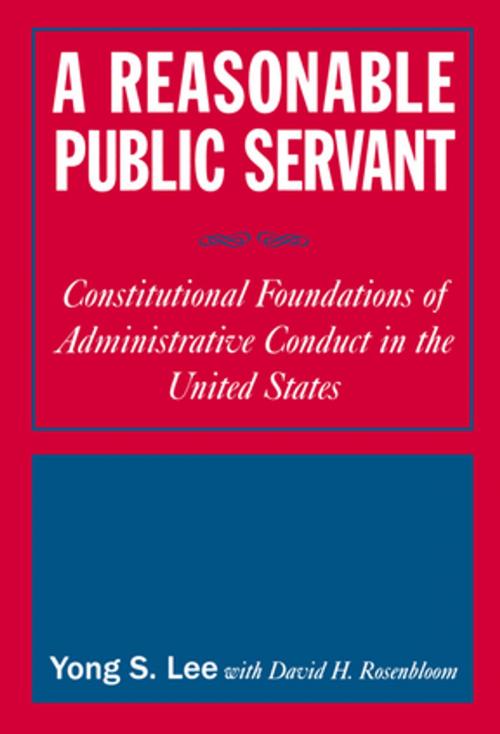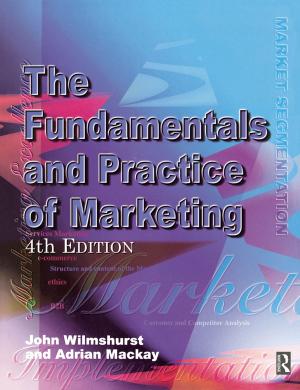A Reasonable Public Servant: Constitutional Foundations of Administrative Conduct in the United States
Constitutional Foundations of Administrative Conduct in the United States
Business & Finance, Marketing & Sales, Sales & Selling, Nonfiction, Social & Cultural Studies, Political Science| Author: | Lily Xiao Hong Lee, David H. Rosenbloom | ISBN: | 9781317477945 |
| Publisher: | Taylor and Francis | Publication: | February 4, 2015 |
| Imprint: | Routledge | Language: | English |
| Author: | Lily Xiao Hong Lee, David H. Rosenbloom |
| ISBN: | 9781317477945 |
| Publisher: | Taylor and Francis |
| Publication: | February 4, 2015 |
| Imprint: | Routledge |
| Language: | English |
An essential text for PA courses on Human Resource Management as well as Public Management and Law, this book illuminates the role of the reasonable public servant, who strives to perform authorized functions efficiently, yet in a manner that aligns with constitutional values embodied in the Bill of Rights. "A Reasonable Public Servant" provides a comprehensive review of Supreme Court opinions in explaining the reasonable conduct of a public servant and the development of clearly established constitutional and statutory rights that a reasonable public servant is expected to observe: property rights; procedural due process; freedom of critical speech; privacy; equal protection; and anti-discrimination laws. The author relies on the Court's opinions as the exemplar of public reason, and pays close attention to the manner in which the Court balances among competing value priorities - for example, the rights of a public servant as an employee as well as an individual citizen, and the efficiency needs of the government as an employer as well as a sovereign state. This book's detailed appendices include the U.S. Constitution, the Bill of Rights, and Title VII of the Civil Rights Act of 1964.
An essential text for PA courses on Human Resource Management as well as Public Management and Law, this book illuminates the role of the reasonable public servant, who strives to perform authorized functions efficiently, yet in a manner that aligns with constitutional values embodied in the Bill of Rights. "A Reasonable Public Servant" provides a comprehensive review of Supreme Court opinions in explaining the reasonable conduct of a public servant and the development of clearly established constitutional and statutory rights that a reasonable public servant is expected to observe: property rights; procedural due process; freedom of critical speech; privacy; equal protection; and anti-discrimination laws. The author relies on the Court's opinions as the exemplar of public reason, and pays close attention to the manner in which the Court balances among competing value priorities - for example, the rights of a public servant as an employee as well as an individual citizen, and the efficiency needs of the government as an employer as well as a sovereign state. This book's detailed appendices include the U.S. Constitution, the Bill of Rights, and Title VII of the Civil Rights Act of 1964.















